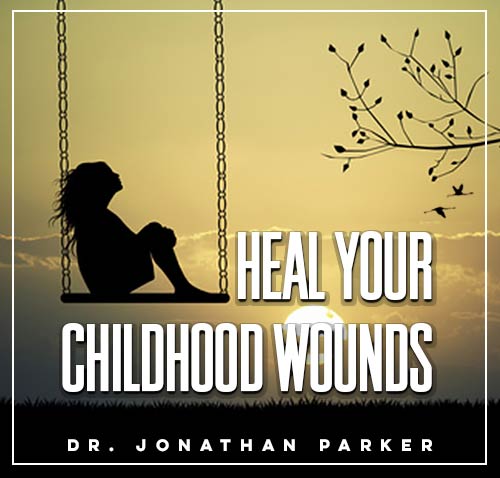Childhood Wound Relief: Embrace Self-Compassion

Before diving in, please note: This post is for informational purposes only. If you’d like to know more about how we approach topics, feel free to check out our friendly Disclaimer Page.
Hey there, amazing readers! 🖐️ Just a quick note: yes, we know there are a lot of ads here. Trust us, we get it—it’s not the prettiest look, but they help us keep this blog alive and kicking. Those pesky little ads cover the costs of all the behind-the-scenes magic, from hosting and tech stuff to creating content we hope you’ll love.
We’re committed to delivering quality posts, and your support (even just sticking around despite the ads) means everything to us. So, bear with us, and thanks for helping us keep the good vibes rolling. Now, on to the fun stuff! 😉
TRANSLATE BUTTON AT THE END OF THE ARTICLE
A Quick Overview:
Childhood wounds are emotional scars that individuals carry from traumatic experiences during their early years.
These wounds can have a lasting impact on mental health, leading to issues such as anxiety, depression, and low self-esteem.
Embracing self-compassion is a powerful tool in healing from childhood trauma, as it allows individuals to be kinder and more understanding towards themselves.
In this article, we will explore the importance of self-compassion in childhood wound relief, its benefits, and how to cultivate this essential skill.
Understanding Childhood Trauma:
Childhood trauma can take many forms, including physical, emotional, or sexual abuse, neglect, or witnessing violence.
These experiences can deeply affect a child’s sense of safety, trust, and self-worth.
Traumatic events during childhood can lead to the development of coping mechanisms that may not be healthy in the long run.
Without proper support and intervention, these wounds can continue to impact individuals well into adulthood.
The Impact on Mental Health:
Childhood wounds can have a significant impact on mental health, leading to a range of issues such as anxiety, depression, post-traumatic stress disorder (PTSD), and even substance abuse.
Individuals who have experienced childhood trauma may struggle with relationships, self-esteem, and regulating their emotions.
These wounds can also manifest in physical symptoms such as chronic pain, digestive issues, and headaches.
It is essential to address these wounds and seek support to prevent further harm.
The Role of Self-Compassion:
Self-compassion is the practice of treating oneself with kindness, understanding, and acceptance, especially in times of suffering or failure.
It involves being mindful of one’s own pain and responding to it with warmth and care.
In the context of childhood wound relief, self-compassion allows individuals to acknowledge their pain without judgment, fostering a sense of safety and validation.
By cultivating self-compassion, individuals can begin to heal from the wounds of their past and develop a healthier relationship with themselves.
Benefits of Self-Compassion:
Embracing self-compassion in the healing process of childhood wounds can have numerous benefits, including:
Reducing self-criticism and negative self-talk.
Increasing resilience and coping skills.
Improving self-esteem and self-acceptance.
Enhancing emotional regulation and stress management.
Promoting forgiveness and letting go of past hurts.
Fostering a sense of connection and belonging.
Enhancing overall well-being and mental health.
Building Self-Compassion Skills:
To cultivate self-compassion, individuals can practice the following skills:
Mindfulness: Being present and aware of one’s thoughts and emotions without judgment.
Self-kindness: Treating oneself with the same care and understanding as a close friend.
Common humanity: Recognizing that suffering is a universal human experience and not isolating oneself in pain.
Self-soothing: Engaging in activities that provide comfort and relief, such as meditation, deep breathing, or spending time in nature.
Self-validation: Acknowledging one’s emotions and experiences as valid and worthy of attention.
Accepting and Validating Emotions:
One crucial aspect of self-compassion is accepting and validating one’s emotions, especially those related to childhood wounds.
Discover "SUPERFOODS: The Key to Health and Balance🥗" 🌿🌺
It is essential to allow oneself to feel and express the full range of emotions that come with healing from trauma.
By acknowledging and validating these emotions, individuals can begin to process and release them in a healthy way.
This practice helps in creating a safe space for healing and growth.
Cultivating a Positive Inner Dialogue:
Another important aspect of self-compassion is cultivating a positive inner dialogue.
This involves challenging negative self-talk and replacing it with kind, supportive, and encouraging thoughts.
By reframing one’s inner narrative, individuals can create a more nurturing and compassionate relationship with themselves.
This shift in perspective can lead to increased self-confidence, resilience, and overall well-being.
Seeking Professional Support:
While self-compassion is a powerful tool in healing from childhood wounds, seeking professional support is also crucial.
Therapists, counselors, and support groups can provide guidance, validation, and a safe space for individuals to explore their trauma and emotions.
Professional support can help individuals process their experiences, develop coping strategies, and work through any lingering effects of childhood wounds.
It is important to reach out for help when needed and not to navigate healing alone.
Healing from Childhood Wounds:
In the journey of healing from childhood wounds, practicing self-care and setting boundaries are essential components.
Self-care involves prioritizing one’s physical, emotional, and mental well-being through activities such as exercise, healthy eating, mindfulness, and relaxation techniques.
Setting boundaries is about establishing limits with others and oneself to protect one’s energy, time, and emotions.
By practicing self-care and setting boundaries, individuals can create a supportive environment for their healing process.
Moving Forward with Self-Compassion:
As individuals continue to heal from childhood wounds and cultivate self-compassion, it is important to focus on moving forward with kindness and understanding.
This involves practicing self-forgiveness, letting go of guilt and shame, and embracing the present moment.
By prioritizing self-compassion in daily life, individuals can build resilience, foster self-acceptance, and create a foundation for lasting healing and growth.
Conclusion:
Childhood wounds can have a profound impact on mental health and well-being, but by embracing self-compassion, individuals can begin the journey of healing and transformation.
Self-compassion allows individuals to acknowledge their pain, validate their emotions, and cultivate a positive inner dialogue.
By practicing self-care, setting boundaries, and seeking professional support, individuals can create a supportive environment for healing from childhood wounds.
Moving forward with self-compassion involves practicing forgiveness, letting go of past hurts, and embracing the present moment with kindness and understanding.
Through the power of self-compassion, individuals can heal from their past and create a brighter future for themselves.

The Enlightenment Journey is a remarkable collection of writings authored by a distinguished group of experts in the fields of spirituality, new age, and esoteric knowledge.
This anthology features a diverse assembly of well-experienced authors who bring their profound insights and credible perspectives to the forefront.
Each contributor possesses a wealth of knowledge and wisdom, making them authorities in their respective domains.
Together, they offer readers a transformative journey into the realms of spiritual growth, self-discovery, and esoteric enlightenment.
The Enlightenment Journey is a testament to the collective expertise of these luminaries, providing readers with a rich tapestry of ideas and information to illuminate their spiritual path.
Our Diverse Expertise 🌟
While our primary focus is on spirituality and esotericism, we are equally passionate about exploring a wide range of other topics and niches 🌍📚. Our experienced team is dedicated to delivering high-quality, informative content across various subjects ✨.
To ensure we provide the most accurate and valuable insights, we collaborate with trusted experts in their respective domains 🧑🏫👩🏫. This allows us to offer well-rounded perspectives and knowledge to our readers.
Our blog originally focused on spirituality and metaphysics, but we’ve since expanded to cover a wide range of niches. Don’t worry—we continue to publish a lot of articles on spirituality! Frequently visit our blog to explore our diverse content and stay tuned for more insightful reads.







